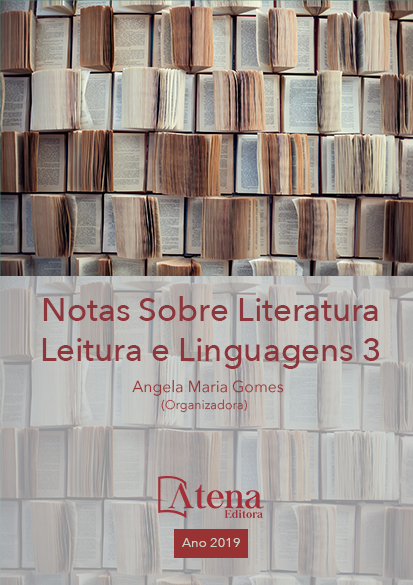
O GÊNERO MEMÓRIAS COMO OBJETO DE ENSINO NO AMBIENTE DIGITAL
Nossa pesquisa busca compreender
e identificar o uso dos gêneros textuais em
sala de aula como fator de vinculação escolar
com as práticas sociais e o papel do professor
como elemento chave deste processo. Com o
objetivo de apresentar reflexões a respeito da
necessidade de inserção das novas Tecnologias
Digitais de Informação e Comunicação- TDIC´sno
ambiente escolar para o ensino de Língua
portuguesa. Este trabalho não somente aponta
a relevância de uma nova proposta pedagógica
e o uso de gêneros textuais para o ensino de
línguas, assim como propõe uma sequência
didática adaptada do modelo proposto por Dolz
e Schenewly (2004) do gênero memórias em
sua condição digital. Este estudo pautou-se na
pedagogia dos multiletramentos desenvolvida
por teóricos como Rojo e Kleiman. Para tanto,
discutimos sobre como práticas educativas
baseadas na pedagogia dos multiletramentos
pode auxiliar no processo de ensinoaprendizagem
de língua portuguesa, a fim de
possibilitar ações concretas para uma prática
pedagógica contextualizada de língua materna.
E, por outro lado, favorecer a construção de
um sujeito capaz de atuar com autonomia nas
demandas sociais de leitura e escrita.
O GÊNERO MEMÓRIAS COMO OBJETO DE ENSINO NO AMBIENTE DIGITAL
-
DOI: 10.22533/at.ed.7111925014
-
Palavras-chave: multiletramentos, gênero textual, sequência Didática.
-
Keywords: multiletramentos, textual genre, Didactic sequence.
-
Abstract:
Our research seeks to understand
and identify the use of textual genres in the
classroom as a factor of school linkage with
social practices and the role of the teacher as a
key element of this process. With the objective
of presenting reflections on the need to insert
the new Digital Information and Communication
Technologies - DICTs - in the school environment
for the teaching of Portuguese Language. This
work not only points out the relevance of a new
pedagogical proposal and the use of textual
genres for language teaching, but also proposes
a didactic sequence adapted from the model
proposed by Dolz and Schenewly (2004) of the
genre in its digital condition. This study was based
on the pedagogy of multiliteracies developed by
theorists like Rojo and Kleiman. Therefore, we
discuss how educational practices based on
the pedagogy of multiliteracies can help in the
teaching-learning process of the Portuguese
language in order to enable concrete actions for a contextualized pedagogical practice
of the mother tongue. And, on the other hand, favor the construction of a subject capable
of acting with autonomy in the social demands of reading and writing.
-
Número de páginas: 15
- Sandra Maria de Lima Alves
- José Herbertt Neves Florencio
- Karla Simões de Andrade Lima Bertotti


